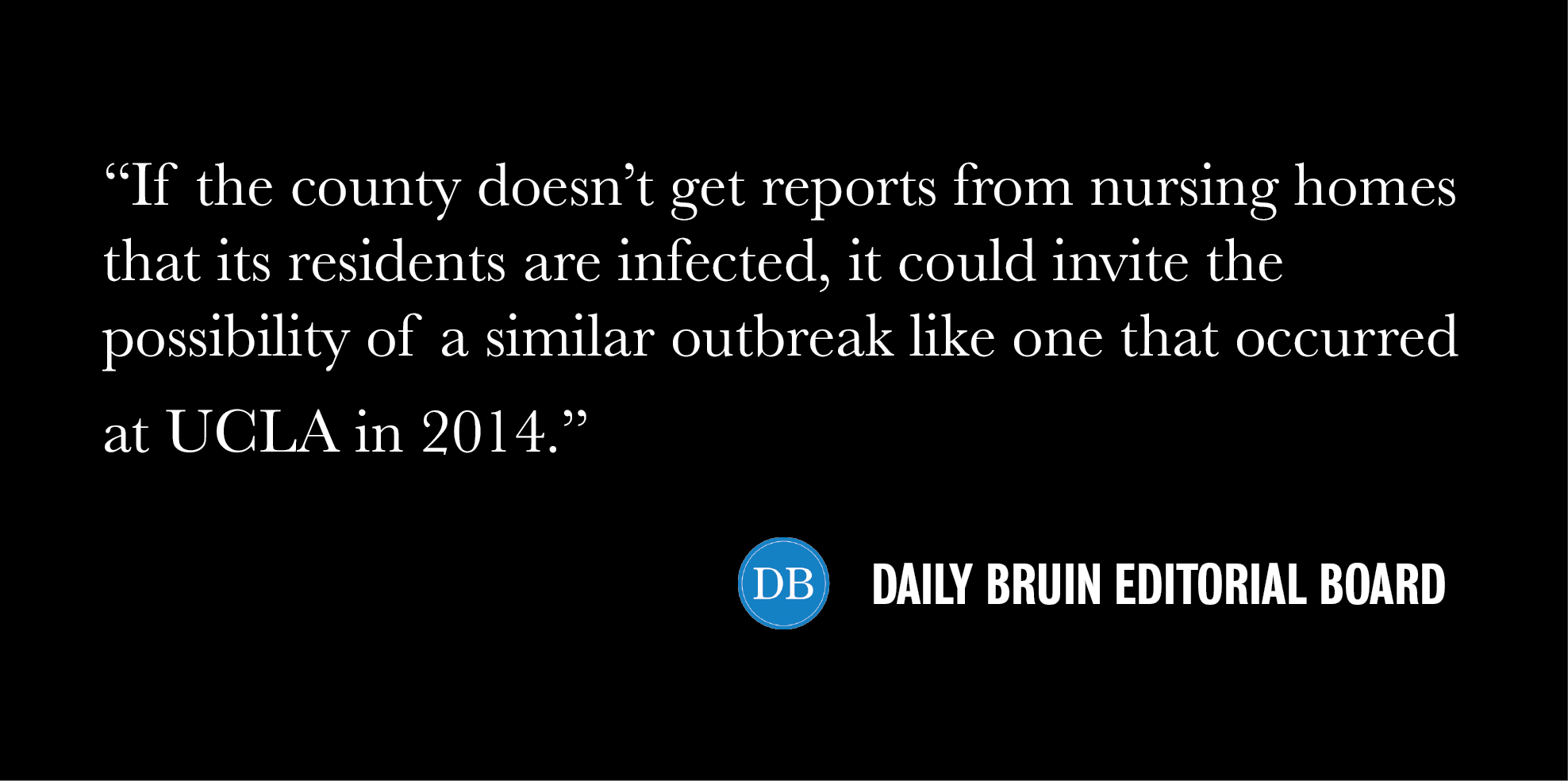Editorial: LA County must require nursing homes to report superbug infections

By Editorial Board
Oct. 9, 2016 8:02 p.m.
Los Angeles County hasn’t forgotten about the superbug.
The county’s health officials said Thursday that the county will require hospitals to report any infections caused by a superbug, a lethal class of a drug-resistant bacteria. This comes a year and a half after the Ronald Reagan UCLA Medical Center revealed that dozens of its patients had been exposed to the superbug outbreak – a massive oversight in one of the nation’s top hospitals.
A United States Senate investigation into the incident found that the other hospitals’ failure to report the previous infections may have contributed to the outbreak. The county’s new requirement, which will be enforced starting in the next few months, is much needed to prevent another outbreak of the same scale.
However, while this new requirement is certainly a step in the right direction, it’s disappointing that it does not require reporting for nursing homes and clinics, where superbug infections have unfortunately been more frequent and more dangerous than most would expect.
For example, U.S. Army researchers found in May that a 49-year-old woman was infected with a bacteria resistant to colistin, an antibiotic provided to patients as a last resort, after she visited a clinic in Pennsylvania. Another study in 2015 found that one in five nursing home residents with advanced dementia are infected with a superbug.
[Related: Patient sues scope manufacturer amid UCLA superbug outbreak]
Superbugs pose a serious threat to nursing homes, which are hotbeds for bacteria and diseases to easily spread infections. What’s more, their clientele are extremely susceptible to contracting an infection because of poor health and older age, which means that once a superbug finds its way into a nursing home, it will easily be able to spread and infect more patients. Furthermore, the Center for Disease Control said nearly 70 percent of nursing home residents receive antibiotics, and up to 75 percent of those antibiotics are given incorrectly, increasing the risk of residents developing a drug-resistant bacteria.
The problem of the superbug cannot be ignored any longer, no matter which setting it’s in. The Center for Disease Control estimates that at least 2 million people are infected each year with a drug-resistant bacteria, and at least 23,000 people die each year as a result of the infection. Health officials must do everything to make sure that the number doesn’t grow.
If the previous outbreaks had been reported earlier, fewer people could have been infected at UCLA. If the county doesn’t get reports from nursing homes about infected residents, it could invite the possibility of a similar outbreak like the one that occurred at UCLA in 2015.


